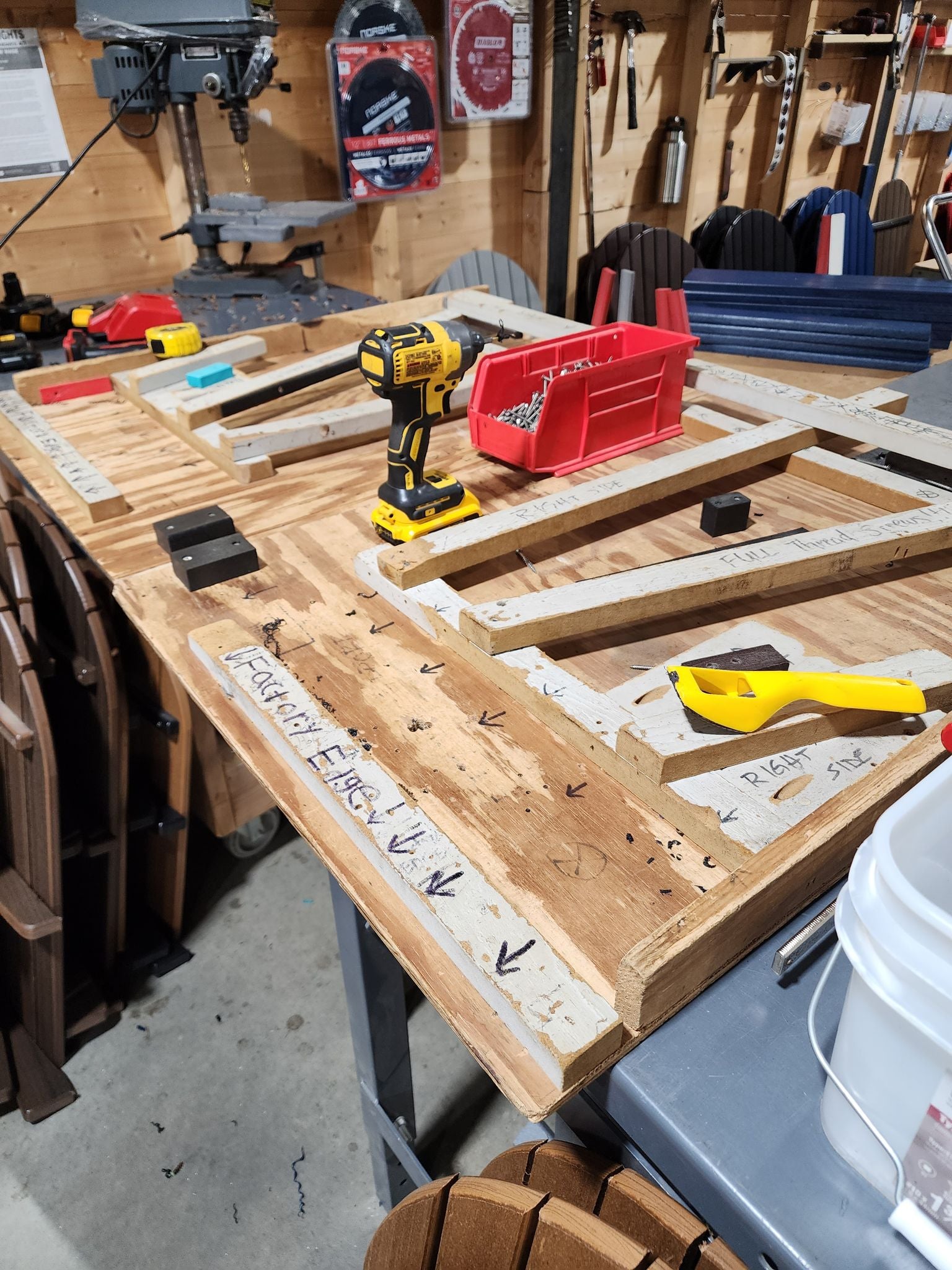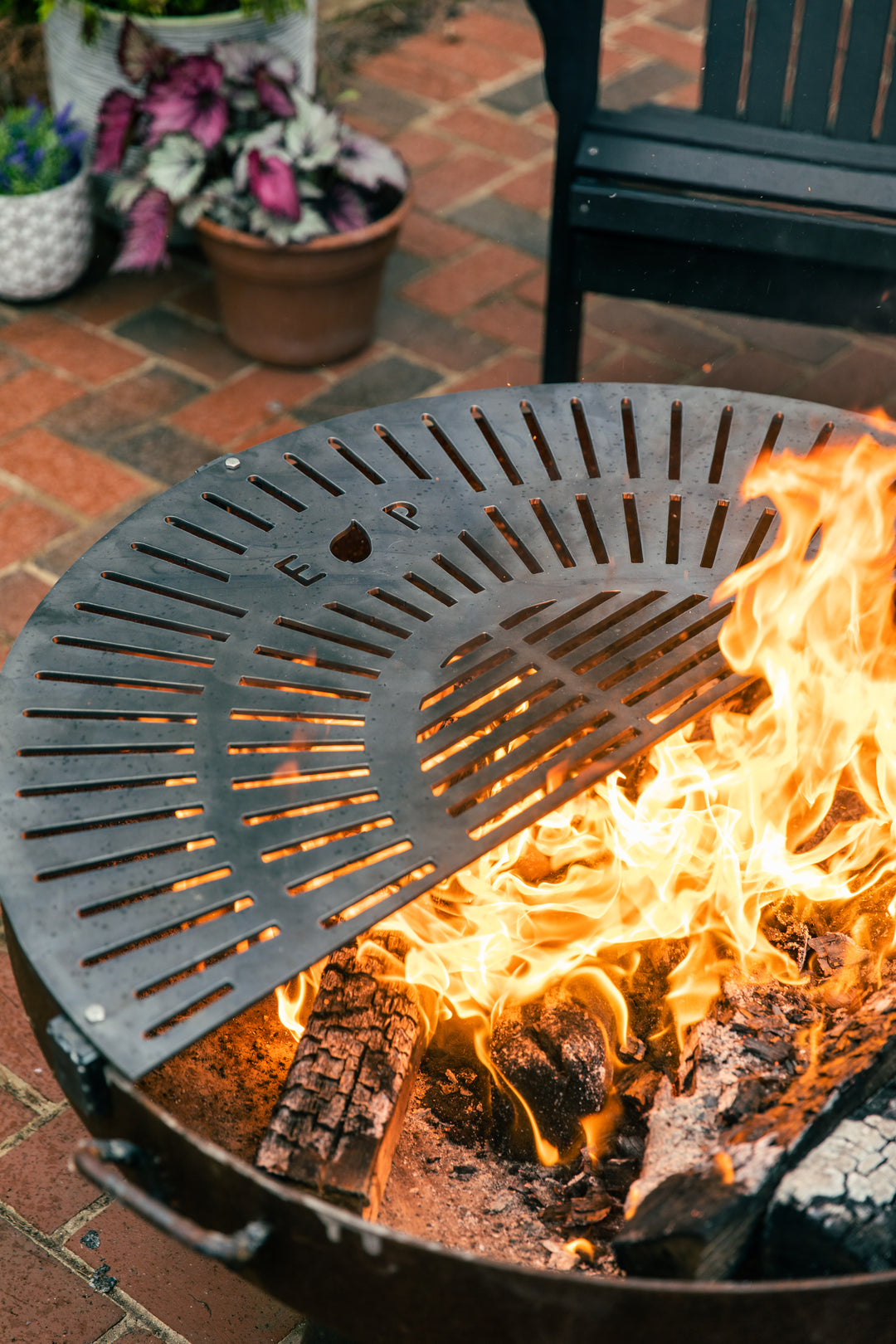The Jigs - A Woodworker's best friend.


15 Years ago now, my Dad and I built these "leg jigs" in the woodshop on our family farm. We built these before any chairs were made to ensure every angle was correct. Jigs save a woodworker from having to carefully measure and line up all the pieces. Every single chair that has come through our shop has started by being framed up on these left and right leg jigs. Its such a simple thing, but literally one of the most important tools we have. Since then, tens of thousands of Adirondack Chairs have been created using our own creative jigs. If the building is burning down, we are going to save these before anything else.
For anyone needing further convincing...
Jigs are important in a woodshop for several reasons.
Firstly, jigs help with repetitive tasks in woodworking. By using a jig, woodworkers can easily and consistently recreate specific cuts, angles, or joinery techniques, saving time and effort. This is particularly useful when creating multiple identical pieces for projects such as furniture or cabinetry.
Secondly, jigs ensure precision and accuracy in woodworking projects. They help to guide tools and materials in a controlled manner, reducing the risk of errors or mistakes. By providing a stable and secure workpiece holding system, jigs help in achieving precise and consistent cuts, hole placements, and joinery.
Furthermore, jigs increase safety in the woodshop by providing additional support and control. They can help keep hands and fingers away from dangerous tools and minimize the risk of accidents. Jigs also reduce the reliance on manual handling of tools, making woodworking operations safer and more efficient.
Lastly, jigs allow woodworkers to expand their capabilities and tackle more complex projects. By using specialized jigs, woodworkers can easily accomplish tasks that would otherwise require extensive skill and experience. Jigs enable the creation of intricate joinery, curved cuts, and complex shapes with greater ease and accuracy.
In conclusion, jigs play a crucial role in a woodshop by facilitating repetitive tasks, ensuring precision, increasing safety, and expanding the range of woodworking possibilities.








Leave a comment